자유게시판
[re] 단위조작이라는것이 정확히 뭘 말하는건가요?
단위조작(unit operation)은 아래에 잘 설명되어 있습니다. 이는 화학공학의 제1패러다임(paradigm)이라고 불리기도 합니다. 제2패러다임은 이동현상이라고 말할 수 있습니다. 대학에서 패러다임은 다른 학문분야와 다른, 그 분야 고유의 학문특성을 말하며, 이는 필수 교과목으로 나타나게 됩니다.
학사과정에서는 주로 단위조작(우리 학부에서는 여러 교과목들로 나누어져 있음), 대학원에서는 이동현상을 배우게 됩니다.
==========================================================
Unit operation
From Wikipedia, the free encyclopedia
In chemical engineering and related fields, a unit operation is a basic step in a process. For example in milk processing, homogenization, pasteurization, chilling, and packaging are each unit operations which are connected to create the overall process. A process may have many unit operations to obtain the desired product.
Historically, the different chemical industries were regarded as different industrial processes and with different principles. In 1923 William H. Walker, Warren K. Lewis and William H. McAdams wrote the book The Principles of Chemical Engineering and explained the variety of chemical industries have processes which follow the same physical laws. They summed-up these similar processes into unit operations. Each unit operation follows the same physical laws and may be used in all chemical industries. The unit operations form the fundamental principles of chemical engineering.
Chemical engineering unit operations consist of five classes:
- Fluid flow processes, including fluids transportation, filtration, solids fluidization
- Heat transfer processes, including evaporation, condensation
- Mass transfer processes, including gas absorption, distillation, extraction, adsorption, drying
- Thermodynamic processes, including gas liquefaction, refrigeration
- Mechanical processes, including solids transportation, crushing and pulverization, screening and sieving
Chemical engineering unit operations also fall in the following categories:
- Combination (mixing)
- Separation (distillation)
- Reaction (chemical reaction)
Chemical engineering unit operations and chemical engineering unit processing form the main principles of all kinds of chemical industries and are the foundation of designs of chemical plants, factories, and equipment used.
See also
- Distillation Design
- Separation process
- Transport phenomena
- Unit Operations of Chemical Engineering
- Process simulation

